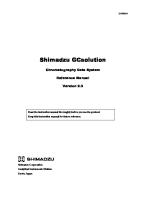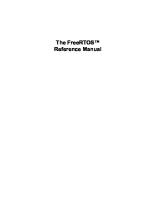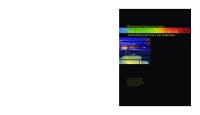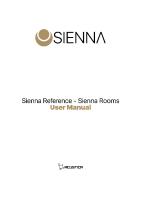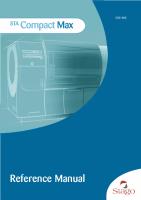Cdma Data Terminal: DTM-500A/H/L Reference Manual Application Information [PDF]
CDMA DATA TERMINAL DTM-500A/H/L Reference Manual Application Information 01-DTM-500A/H/L-1-X1 June,12, 2006 CDMA DATA
29 0 184KB
Papiere empfehlen
![Cdma Data Terminal: DTM-500A/H/L Reference Manual Application Information [PDF]](https://vdoc.tips/img/200x200/cdma-data-terminal-dtm-500a-h-l-reference-manual-application-information.jpg)
- Author / Uploaded
- AVI
Datei wird geladen, bitte warten...
Zitiervorschau
CDMA DATA TERMINAL DTM-500A/H/L Reference Manual Application Information 01-DTM-500A/H/L-1-X1 June,12, 2006
CDMA DATA TERMINAL (DTM-500A/H/L Reference Manual)
AnyDATA CDMA Module Series Reference Design Specification Copyright © 2005 AnyDATA Corp. All Rights Reserved. Any part of this document may not be distributed, communicated, reproduced or transmitted in any form or by any means, electronic or mechanical or otherwise, for any purpose, without the permission of AnyDATA Corp. This document can be subjected to revision without further notice.
Contact Address Headquarter AnyData Corporation 18902 Bardeen Ave, lrvine, CA 92612-1522 U.S.A. http://www.anydata.net e-mail: [email protected] Rep:1-949-833-0011 Fax: 1-949-833-0022 AnyData(China) 489 Song Tao Road, Sector B, 1 st Fl. Pudong ZhanJiang HiTech Park, Shanghai, 201203, P.R.China http://www.anydata.net.cn e-mail: [email protected] Rep:+86-21-5080-4828 Fax:+86-21-5080-3828 AnyData.Net Inc.(Korea) DaeGo Bldg, 8 th., 1591-10 Kwanyang-dong, Dongan_gu, Anyang City, Kyunggi-do Korea. http://www.anydata.co.kr e-mail: [email protected] Rep:+82-31-380-7100 Fax:+82-31-476-6021
AnyTime AnyPlace AnyWireless Data Solutions™
2/22
CDMA DATA TERMINAL (DTM-500A/H/L Reference Manual)
Contents 1 Revision History ....................................................................................................................................... 4 2. Overview................................................................................................................................................... 5 2.1 Application Descriptions................................................................................................................... 5 2.2 Technical Specifications ................................................................................................................... 6 2.2.1 General Specifications .................................................................................................................. 6 2.2.2 Receive Specifications .................................................................................................................. 6 2.2.3 Transmit Specifications ................................................................................................................. 6 2.2.4 MSM6800 Chipset Highlights ........................................................................................................ 7 2.2.4 Standards ...................................................................................................................................... 7 3. PIN Description ........................................................................................................................................ 8 3.1 I/O Description Parameters............................................................................................................... 8 3.2 PIN Names and Pinouts..................................................................................................................... 8 3.2.1 60-Pin Connector .......................................................................................................................... 8 4. Interface Descriptions ........................................................................................................................... 10 4.1 Overview ........................................................................................................................................... 10 4.2 CODEC Interface ..............................................................................................................................10 4.2.1 Internal CODEC Interface ........................................................................................................... 10 4.2.2 Extended CODEC Interface ........................................................................................................ 11 4.3 UART & USB Interface ..................................................................................................................... 11 4.3.1 UART1 interface.......................................................................................................................... 12 4.3.2 UART2 & UART3 interface ......................................................................................................... 12 4.3.3 USB Interface .............................................................................................................................. 12 4.4 Power Up The Module ..................................................................................................................... 13 4.4.1 External Supply ........................................................................................................................... 13 4.4.2 Keypad “ Power On” and Supply Input to “BATT_INT” ............................................................... 13 4.4.3 External RESET .......................................................................................................................... 14 4.5 Power Down Registration ............................................................................................................... 15 4.5.1 Power Down Registration ........................................................................................................... 15 4.5.1.1 Power Down Registration Protocol for CDMA device..................................................................... 15
4.6 CHARGE ........................................................................................................................................... 16 4.6.1 Charging circuit of using external DC power. .............................................................................. 16 4.6.2 Charging circuit of using USB power. ......................................................................................... 17 5. Electrical Specifications ....................................................................................................................... 18 5.1 DC Electrical Specifications ........................................................................................................... 18 5.1.1 Absolute Maximum Ratings ........................................................................................................ 18 5.1.2 Recommended Operating Conditions ......................................................................................... 18 5.1.3 Power Consumption .................................................................................................................... 18 5.1.4 Serial Interface Electrical Specifications ..................................................................................... 18 6. Mechanical Dimensions........................................................................................................................ 19 6.1 DTM-500A/H/L Outline ..................................................................................................................... 19 6.2 60-Pin Connector Mechanical Dimension ..................................................................................... 20 6.3 RF Connector ................................................................................................................................... 22
AnyTime AnyPlace AnyWireless Data Solutions™
3/22
CDMA DATA TERMINAL (DTM-500A/H/L Reference Manual)
1 Revision History The revision history for this document is shown in Table 1-1.
Table 1-1 Revision History Version V1_X1
Date Feb. 2006
Description Initial Release
AnyTime AnyPlace AnyWireless Data Solutions™
4/22
CDMA DATA TERMINAL (DTM-500A/H/L Reference Manual)
2. Overview 2.1 Application Descriptions The CDMA Wireless Data Module is a complex consumer communications instrument that relies heavily on both digital signal and embedded processor technologies. The Wireless Data Modules manufactured by AnyDATA.NET support Code-Division Multiple Access (CDMA). This operates in
the cellular
spectrum band. In a continuing effort to simplify the design and to reduce the size and production cost of the Wireless Data Module, AnyDATA.NET has successfully developed the DTM series. There are several blocks in Band Class 5 (NMT-450). DTM-500A operates in “A” block of Band Class 5. DTM-500H operates in “H” and “I” block of Band Class 5. DTM-500L operates in “L” block of Band Class 5. The DTM-500A/H/L is AnyDATA.NET’s latest compact Wireless Data Module operating in the NMT-450 band. The DTM500A/H/L contains not only a complete digital modulation and demodulation system for CDMA standards as specified in IS-95 A/B, IS_2000 and IS-856. The DTM-500A/H/L supports the CDMA200 1X, and 1xEV-DO, providing improved capacity and data throughput The subsystem in the DTM-500A/H/L includes a CDMA processor (MSM6800), an integrated CODEC with an ear piece and microphone amplifiers, and an RS-232 serial interface supporting forward link data communications at a rate of 14.4kbps. The DTM-500A/H/L provides an external interface that includes the standard RS-232, Digital Audio, External reset control, Ringer extension ports and R-UIM USB host or slave mode. The DTM-500A/H/L has the capability to power down unused circuits in order to dynamically minimize power consumption.
AnyTime AnyPlace AnyWireless Data Solutions™
5/22
CDMA DATA TERMINAL (DTM-500A/H/L Reference Manual)
2.2 Technical Specifications 2.2.1 General Specifications Parameters External Access CDMA Protocol Data Rate Transmit/Receive Frequency Interval Vocoder RF technology Number of Channel Operating Voltage Current Consumption Operating Temperature Frequency Stability Antenna Size Weight External Interface User Interface Software Additional Function
Descriptions Code-Division-Multiple-Access (CDMA) IS-95 A/B, IS-98A, IS-126, IS-637A, IS-707A, IS-2000, IS-856 Down link : 2.45Mbps, Up Link : 153.6Kbps max 10MHz EVRC, 13kQCELP Zero Intermediate Frequency 200FA(BW:1.23MHz) VBATT_INT : +3.8V ±10% VEXT_DC : +4.5V±10% Stand by mode: Idle (110mA), Sleep (less than 1mA) Busy mode: About 600mA -20ºC ~ +50ºC ±300Hz GSC Connector, 50ohm 30 X 40 X 4mm with case About 9g RS-232s, Digital/Analog Audios, Ringer External Reset Control, R-UIM, USB, GPIOs BREW support GPS One position location solution USB interface
2.2.2 Receive Specifications Parameters Frequency Range Sensitivity Interference Rejection Spurious Wave Suppression Input Dynamic Range
Descriptions 462.5 ~ 467.475 MHz for “A” and 461.325 ~ 465.725 MHz for “I” 420.000 ~ 424.975 MHz for “L” Below –104 dBm Single tone (-30dBm @900KHz): Below –101dBm Two tone (-43 dBm @900KHz and 1700KHz): Below –101dBm Below –80dBc -25 dBm ~ -104dBm
2.2.3 Transmit Specifications Parameters Frequency Range
Descriptions 452.5 ~ 457.475 MHz for “A” and 451.325 ~ 455.725 MHz for “I” 410.000 ~ 414.975 MHz for “L”
Nominal Power Minimum Controlled Output Power Max Power Spurious
0.32 W (25.0dBm) Below –50dBm 900KHz: Below –42dBc/30KHz 1.98MHz: Below –54dBc/30KHz
AnyTime AnyPlace AnyWireless Data Solutions™
6/22
CDMA DATA TERMINAL (DTM-500A/H/L Reference Manual)
2.2.4 MSM6800 Chipset Highlights Enhanced Processing power Radio-One ZIF Architecture Support High Data Rates Multi-mode Solution
a. ARM926EJS processor with Java accelerator b. Advanced QDSP4000 DSP cores a. Saves board space b. Integrated solution a. CDMA2000 1xEVDO (IS-856) support b. Receive diversity on CDMA2000 1X and 1xEVDO systems a. 1X / 1xEVDO / GPS b. Diversity RX
2.2.4 Standards IS-95 A/B: Protocol Between MS & BTS IS-96A: Voice Signal Coding IS-98A: Base MS Function IS-126: Voice Loop-Back IS-637: Short Message Service IS-707: Data Service Built-in TCP/IP : AnyDATA proprietary software IS-657 : packet data IS-856 : packet data
AnyTime AnyPlace AnyWireless Data Solutions™
7/22
CDMA DATA TERMINAL (DTM-500A/H/L Reference Manual)
3. PIN Description 3.1 I/O Description Parameters Symbol I O B N IS BS PU PD
Descriptions CMOS Input Output Bi-directional Voltage or Current Level Input with Schmitt Trigger Bi-directional Schmitt Trigger Internal Pull-Up Internal Pull-Down
3.2 PIN Names and Pinouts 3.2.1 60-Pin Connector
PIN 1 2 3 4 5 6 7 8 9 10 11 12 13 14 15 16 17 18 19 20 21 22 23 24 25 26 27 28 29 30 31 32 33 34 35 36
NAME GND GND MSM_DP_TXD MSM_DP_RXD MSM_DP_TXD3 MSM_DP_RXD3 UIM_CLK UIM_RESET UIM_DATA VREG_UIM GPIO_INT66 MIC2P HPH_R HPH_L MIC1P EAR1OP EAR1ON AUX_PCM_CLK AUX_PCM_DOUT AUX_PCM_DIN AUX_PCM_SYNC POWER_ON ISNS_P USB_ID CHG_CTL_N USB_CTL_N NC NC NC NC NC NC NC NC PS_HOLD BATT_ID
TYPE / DIR-POL V V BS-PP3 BS-PP3 BS-PP3 BS-PP3 DO DO DI/DO V DI AI AO AO AI AO AO BS-PP3 BS-PP3 BS-PP3 BS-PP3 DI VI DI DO DO
BS-PP3( PULL UP) V
DESCRIPTION GND GND MSM_DP_TXD MSM_DP_RXD MSM_DP_TXD3 MSM_DP_RXD3 UIM_CLK UIM_RESET UIM_DATA VREG_UIM EAR_DET EAR_MIC EAR_JACK+ EAR_JACKEXTERNAL MIC RECEIVER+ RECEIVERAUX_PCM_CLK AUX_PCM_DOUT AUX_PCM_DIN AUX_PCM_SYNC POWER ON ISNS_P USB_ID CHG_CTL_N USB_CTL_N NC NC NC NC NC NC NC NC PS_HOLD BATT_ID
FUNCTION GROUND UART1 UART3
R-UIM
ANALOG AUDIO (EARJACK/MIC/RECEIVER)
DIGITAL AUDIO POWER ON/OFF(@battery) (ACTIVE LOW) CHARGER USB CHARGER
NO CONNECT
External RESET (ACTIVE LOW) BATTERY RECOGNITION
AnyTime AnyPlace AnyWireless Data Solutions™
8/22
CDMA DATA TERMINAL (DTM-500A/H/L Reference Manual) PIN 37 38 39 40 41 42 43 44 45 46 47 48 49 50 51 52 53 54 55 56 57 58 59 60
NAME GPIO_INT05 GPIO_INT09 GND GND GPIO_INT11 NC NC NC NC NC SPK_OUT+ SPK_OUTUSB_D+ USB_DUSB_VBUS BATT_INT VEXT_DC BATT_INT VEXT_DC VPH_PWR NC VPH_PWR GND GND
TYPE / DIR-POL B-PP3 B-PP3 V V B-PP3
AO AO B BS-PU IS-PU VI VI VI VI VO VO V V
DESCRIPTION BUSY SMS GND GND IDLE NC NC NC NC NC SPEAKER OUT+ SPEAKER OUTUSB_D+ USB_DUSB_VBUS INTERNAL_BATTERY EXTERNAL DC INTERNAL BATTERY EXTERNAL DC VPH_PWR NC VPH_PWR GND GND
FUNCTION GPIO GROUND
GPIO NO CONNECT
ANALOG AUDIO (SPEAKER) USB
EXTERNAL POWER SOURCE (EXTERNAL DC & BATTERY) POWER SUPPLY NO CONNECT POWER SUPPLY GROUND
Figure 3-1 60pin Connector Pin-outs (Bottom View)
Note: 1. We strongly recommend that the user has a 3-pin connector or 3 test points on their board, so that one can easily monitor and diagnose their module.
2. If the user wants the module to monitor battery voltage and the user is using a regulator in conjunction with a battery, whose maximum voltage exceeds 4.3 V, to drive the module, then the user should please contact our engineers.
AnyTime AnyPlace AnyWireless Data Solutions™
9/22
CDMA DATA TERMINAL (DTM-500A/H/L Reference Manual)
4. Interface Descriptions 4.1 Overview This chapter covers information required to convert the DTM-500A/H/L into a subscriber unit application. In addition, some of the internal blocks of the device are described. Understanding these internal blocks is necessary for one to completely grasp the functions of the various interfaces. This chapter discusses the interface to the major blocks of the DTM-500A/H/L as shown in the following figure. These blocks include: ♦ CODEC Interface ♦ UART Interface ♦ Power UP ♦ Power Down Registration ♦ Charger
4.2 CODEC Interface With the integrated microphone and earpiece amplifier including CODEC, the DTM-500A/H/L module interfaces directly, either differential or single-ended, to the microphone and earpiece. The audio features in the module are ♦ Two microphone inputs ♦ Two earphone outputs and one auxiliary audio output.
4.2.1 Internal CODEC Interface The module contains analog audio interface circuitry. The contained audio interface supports all of the required conversation and amplification stages for the audio front end. The audio interface includes the amplification stages for both the microphone and earphone. The EAR10 and MIC1P are typically used for the handset microphone, The EAR_JACK+ and MIC2P are typically used for the ear-jack.
Table 4-1 Analog Audio Pinouts NAME MIC2P EAR_DET1 HPH_R HPH_L EAR10_N EAR10_P
DESCRIPTION Mic Jack Input EAR/MIC Set Detect Earphone Output Earphone Output Speaker Output Speaker Output +
CHARACTERISTIC Analog Input (Pin No. 12, for Ear-Mic Jack) * Logic Input (Pin No. 11) ** Analog Output (Pin No. 13 for Ear-Mic Jack) Analog Output (Pin No. 14 for Ear-Mic Jack) Analog Output (Pin No. 17) Analog Output (Pin No. 16)
AnyTime AnyPlace AnyWireless Data Solutions™
10/22
CDMA DATA TERMINAL (DTM-500A/H/L Reference Manual) NAME MIC1P SPRK_OUT_N SPRK_OUT_P
DESCRIPTION Mic Input Auxiliary Output Auxiliary Output +
CHARACTERISTIC Analog Input (Pin No. 15) Analog Output (Pin No. 48) Analog Output (Pin No. 47)
Note: 1. MIC2, along with being a microphone input, checks to see if the user has pressed the headset key, which allows the user to connect to or disconnect from a call. This pin is internally pulled high and is therefore normally in the high state. To activate this input and connect to or disconnect from a call, the user must set the MIC2 pin to a low state for 100ms to 200ms. 2. EAR_DET1 checks to see if a headset has been connected to the ear-jack. When there is no headset connected to the ear-jack, the audio path is disconnected. When a headset is connected to the ear-jack an audio path is opened. To simulate a headset connected to the ear-jack, the user must apply a low signal to the EAR_DET1 pin for as long as the user wants the audio path to be kept open.
4.2.2 Extended CODEC Interface The PCM CODEC interface is used for the car-kit audio system. This interface is optional. External CODEC interface signals are listed below:
Table 4-2 Digital CODEC Pinouts NAME AUX_PCM_CLK AUX_PCM_DOUT AUX_PCM_DIN AUX_PCM_SYNC
DESCRIPTION PCM Clock PCM Data Output PCM Data Input PCM Sync.
PINOUTS Pin No. 18 Pin No. 19 Pin No. 20 Pin No. 21
4.3 UART & USB Interface The Universal Asynchronous Receiver Transmitter (UART) communicates with serial data that conforms to the RS-232 Interface protocol. The module has
3 UARTs which provides 3.0V CMOS level outputs
and 3.0V CMOS input levels. All the control signals of the RS-232 are active low, however the data signals, RXD and TXD, are active high. UART1 which has 512 bytes for Tx and Rx FIFO, supports high speed data communication up to 230.4kbps, program download and diagnostic monitor function. UART2 which 64 bytes for T/Rx FIFO, support low speed data communication up to 115.2kbps, program download and diagnostic monitor function. The UART features hardware handshaking, programmable data sizes, programmable stop bits, and odd, even, no parity.
AnyTime AnyPlace AnyWireless Data Solutions™
11/22
CDMA DATA TERMINAL (DTM-500A/H/L Reference Manual)
4.3.1 UART1 interface
Table 4-3 UART1 Interface Pinouts NAME MSM_DP_TXD MSM_DP_RXD GND
DESCRIPTION Transmit Data Receive Data Signal Ground
PIN NUNBER 3 4 1,2,39,40,59,60
CHARACTERISTIC Output data from the module Input data to the module Signal ground
4.3.2 UART2 & UART3 interface The UART2, UART3 supports not only UART function, but also R-UIM interface.
Table 4-4 R-UIM Interface Pinouts NAME VREG_UIM (UIM_PWR_EN) UIM_DATA (UIM_DATA) UIM_RESET (UIM_RESET) UIM_CLK/ (UIM_CLK) GND
DESCRIPTION Receive Data Transmit Data Clear to Send Ready for Receive Signal Ground
PIN NUMBER 10 9 8 7 1,2,39,40,59,60
CHARACTERISTIC Input data to the module Output data from the module Clear to send to the host Ready for receive from host Signal ground
Table 4-5 UART3 Interface Pinouts NAME UART3_RXD UART3_TXD GND
DESCRIPTION Receive Data Transmit Data Signal Ground
PIN NUMBER 6 5 1,2,39,40,59,60
CHARACTERISTIC Input data to the module Output data from the module Signal ground
4.3.3 USB Interface MSM6800 device contains a Universal Serial Bus(USB) interface to provide an efficient interconnect between the mobile phone and a personal computer(PC).
Table 4-6 USB Interface Pinouts NAME USB_ DUSB_ D+ USB_VBUS USB_ID GND
DESCRIPTION
USB VBUS Signal Ground
PIN NUMBER 50 49 51 24 1,2,39,40,59,60
CHARACTERISTIC Differential minus data Differential plus data Input VBUS from the USB Signal ground
AnyTime AnyPlace AnyWireless Data Solutions™
12/22
CDMA DATA TERMINAL (DTM-500A/H/L Reference Manual)
4.4 Power Up The Module There are two ways to power up the module and customers may choose one of the two ways to power up DTM-500A/H/L module.
4.4.1 External Supply If the customers don’t need to save current in sleep mode, which is around 10mA, Supplying voltage to VEXT_DC is recommended. When the input voltage from +4V to +5.25V is supplied, DTM-500A/H/L will automatically start its power-on process and finish it within 2 seconds.
Table 4-7 External Supply Pinouts NAME VEXT_DC VEXT_DC GND
DESCRIPTION
Signal Ground
PIN NUMBER 53 55 1,2,39,40,59,60
CHARACTERISTIC External DC input External DC input Signal ground
4.4.2 Keypad “ Power On” and Supply Input to “BATT_INT” If the customers need to get their device to operate in a very low sleep current mode(about 1mA), supplying voltage to BATT_INT is recommended. When the input voltage from +3.3V to +4.5V is supplied to BATT_INT and POWER_ON goes to Low from High, power on sequence is initialed. For a successful power on sequence, POWER_ON must stay Low for more than 500ms and less than 2sec. To power off the module, have POWER_ON stay low for more than 2sec and less than 4sec and then the voltage in BATT_INT may or may not be removed.
Table 4-8 Battery Supply Pinouts NAME VBATT_INT VBATT_INT POWER_ON GND
DESCRIPTION
Signal Ground
PIN NUMBER 52 54 22 1,2,39,40,59,60
CHARACTERISTIC Battery Plus(+) input Battery Plus(+) input Power ON/OFF ( Internally PULL UP) Signal ground
AnyTime AnyPlace AnyWireless Data Solutions™
13/22
CDMA DATA TERMINAL (DTM-500A/H/L Reference Manual)
DTM-
Picture 4-1 Example of Power on switch
4.4.3 External RESET When software lock-up symptoms are found. PS_HOLD Pin( Internally PULL UP ) goes to Low from High for 2seconds , DTM-500A/H/L will be reboot
DTM-500A/H/L Connect to GPIO Pin in your part
About 2 sec
Picture 4-2 Example of External Reset
AnyTime AnyPlace AnyWireless Data Solutions™
14/22
CDMA DATA TERMINAL (DTM-500A/H/L Reference Manual)
4.5 Power Down Registration 4.5.1 Power Down Registration Before DTM-500A/H/L is powered off, it has to send power down registration message to the CDMA
base station to help the base station to maximize its capacity.
Depending on air
interface environment, it may take 12 seconds at maximum according to CDMA technical standard. 4.5.1.1 Power Down Registration Protocol for CDMA device
4.5.1.1.1 Using AT command – most convenient method
Device connected to DTM-500A/H/L
DTM-
Before powering off DTM-500A/H/L, send “AT+POWEROFF” to DTM-500A/H/L.
500A/H/L
After waiting for 12 seconds, the host device may shut down the power to DTM500A/H/L.
4.5.1.1.2 Using Keysense Pin (Pin # is TBD) Status of Keysense HIGH LOW
L In Booting stage. In normal
T1
T1+12sec. Shut off the CDMA
To do power down registration, make it “Low” for at least TBD seconds.
AnyTime AnyPlace AnyWireless Data Solutions™
15/22
CDMA DATA TERMINAL (DTM-500A/H/L Reference Manual)
4.6 CHARGE DTM-500A/H/L can support charging function ( Use USB power, Use DC power, and Both ). but it can not charge itself. If customer need to use charging function, they should input charging circuit in their part.
4.6.1 Charging circuit of using external DC power.
Table 4-8 External DC power charging Supply Pin-outs NAME VBATT_INT CHG_CTL_N ISNS_P VPH_PWR GND
DESCRIPTION INTERNAL BATTERY CHG_CTL_N ISNS_P VPH_PWR Signal Ground
PIN NUMBER 52,54 25 23 56,58 1,2,39,40,59,60
CHARACTERISTIC Battery Plus(+) input Charge Charge POWER SUPPLY +4.0V Output
Signal ground
This example is Using External DC power. PNP Transistor, 220 Ohm resistor.
DTM-
Figure 4-1 Example of Charging circuit
AnyTime AnyPlace AnyWireless Data Solutions™
16/22
CDMA DATA TERMINAL (DTM-500A/H/L Reference Manual)
4.6.2 Charging circuit of using USB power.
Table 4-8 USB power charging Supply Pin-outs NAME VBATT_INT USB_CTL_N ISNS_P VPH_PWR GND
DESCRIPTION INTERNAL BATTERY USB_CTL_N ISNS_P VPH_PWR Signal Ground
PIN NUMBER 52,54 26 23 56,58 1,2,39,40,59,60
CHARACTERISTIC Battery Plus(+) input Charge Charge POWER SUPPLY
Signal ground
This example is Using USB power. PNP Transistor, 430 Ohm resistor.
DTM-
Connect to DTM-500A/H/L and USB Connector in your part
Figure 4-2 Example of Charging circuit
AnyTime AnyPlace AnyWireless Data Solutions™
17/22
CDMA DATA TERMINAL (DTM-500A/H/L Reference Manual)
5. Electrical Specifications 5.1 DC Electrical Specifications 5.1.1 Absolute Maximum Ratings Operating the module under conditions that exceed those listed in the Absolute Maximum Ratings table may result in damage to the module. Absolute Maximum Ratings should be considered as limiting values. The module may not function properly and should not be operated if any one of the parameters is not within its specified operating range. PARAMETER Storage Temperature Voltage On Any Input or Output Pin Supply Voltage Initializing Current
MIN -40 -0.8 -1.0 170
MAX +80 +3.5 +10.0
UNITS ºC V V mA
Table 5-1 Absolute Maximum Ratings
5.1.2 Recommended Operating Conditions PARAMETER +VEXT_DC Supply Voltage BATT_INT Operating Temperature Operating Humidity
MIN +4.0 +3.4 -20
TYP +4.5 +3.8
MAX UNITS +5.0 V V +4.2 +50 ºC 65%(60ºC) / 0%(-30ºC) Relative Humidity
5.1.3 Power Consumption
STANDBY
CONVERSATION (Busy)
Idle 110mA
600mA (MAX)
Sleep LESS Than 1mA
5.1.4 Serial Interface Electrical Specifications
PARAMETER
MIN
Input High Voltage Input Low Voltage Output High Voltage Output Low Voltage
+2.0 -0.5 +2.4
TYP (NO LOAD) +3 0 +2.7 0
AnyTime AnyPlace AnyWireless Data Solutions™
MAX
UNITS
+3.3 +0.8
V V V V
+0.4
18/22
CDMA DATA TERMINAL (DTM-500A/H/L Reference Manual)
6. Mechanical Dimensions 6.1 DTM-500A/H/L Outline
Figure 6-1 DTM-500A/H/L Outline (Units: mm)
AnyTime AnyPlace AnyWireless Data Solutions™
19/22
CDMA DATA TERMINAL (DTM-500A/H/L Reference Manual)
6.2 60-Pin Connector Mechanical Dimension Part Name: Plug pin connector (0.5mm pitch, straight, dual row) Part Number: 55560-0601 Manufacture : MOLEX
Note: For more information on the 60-pins Plug connector, Please refer to: http://www.molex.com/ , click connector, and then Please search
part number “55560_0601”
Figure 6-2 60pins Connector (Units: mm)
AnyTime AnyPlace AnyWireless Data Solutions™
20/22
CDMA DATA TERMINAL (DTM-500A/H/L Reference Manual)
Counter-Part Part Name: Socket pin connector (0.5mm pitch, straight, dual row) Part Number: 54722_0601 Manufacture : MOLEX
Note: For more information on the 60-pins socket connector, Please refer to: http://www.molex.com/ , click connector, and then Please search
part number “54722_0601”
Figure 6-3 Counter part 60pins Connector (Units: mm)
AnyTime AnyPlace AnyWireless Data Solutions™
21/22
CDMA DATA TERMINAL (DTM-500A/H/L Reference Manual)
6.3 RF Connector
Figure 6-3 RF Connector (GSC type, Units: mm)
Counter-Part (not found on the DTM-500A/H/L) used to connect the RF connector to an antenna:
Figure 6-4 Mechanical Characteristics of Cable Harness Assembly (Units: mm)
Part name: Cable Harness Assembly Note: For more information about the RF connector parts, please refer to the file found at
http://www.murata.com/catalog/o30e5.pdf
AnyTime AnyPlace AnyWireless Data Solutions™
22/22

